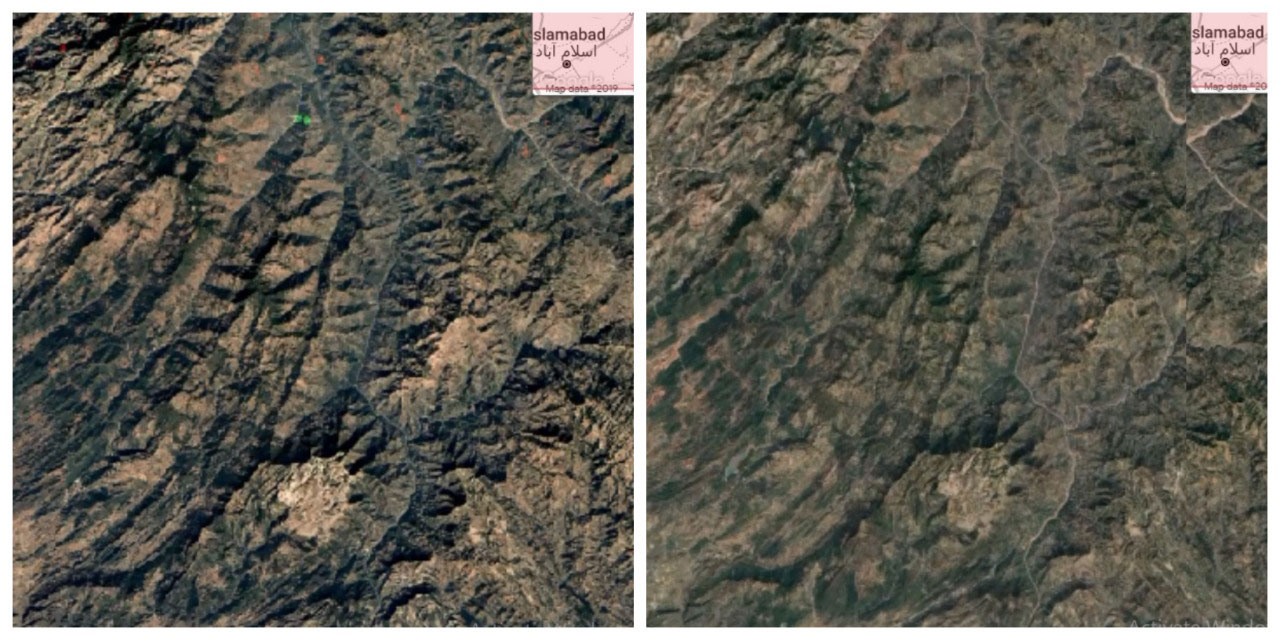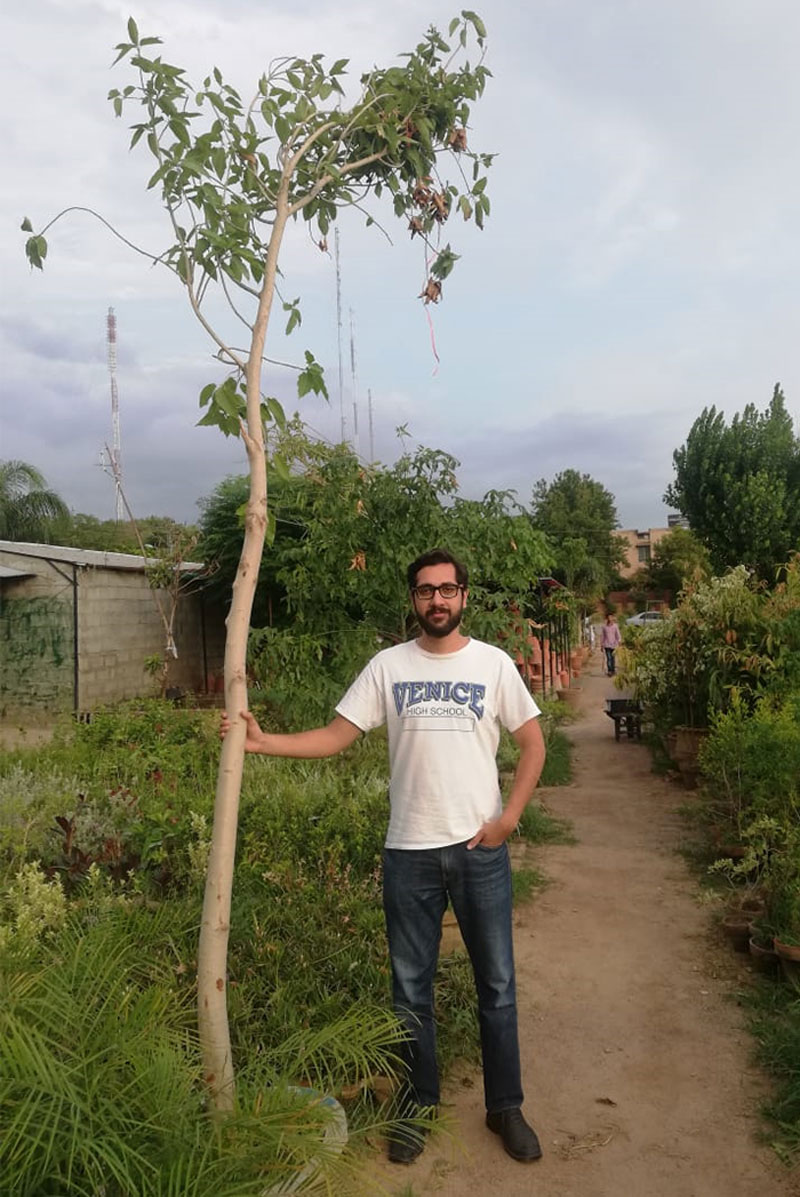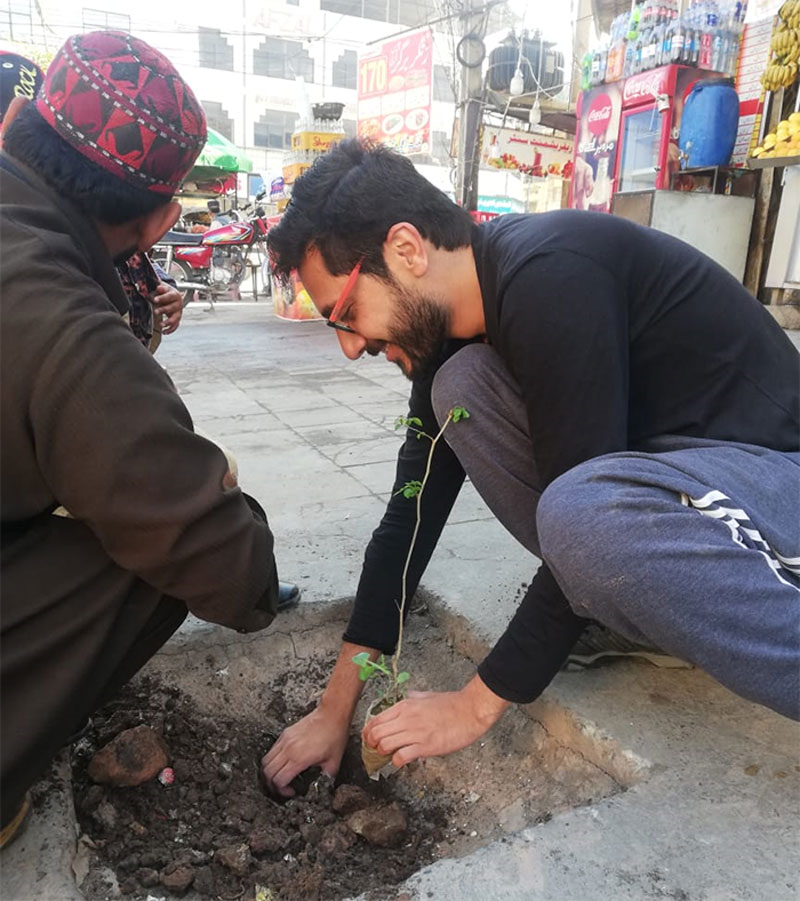The Whatsapp messages were not much of a shock for Fahad Rizwan as he moved towards the exit gate of the Islamabad airport after returning from a brief visit to an international youth festival in Moscow.
It was clear that the friction between him and his socialist political party had reached to its highest ebb. The messages indicated that the disagreements had come to a point where the only thing left for the bespectacled activist was to part ways and say ‘Khuda Hafiz’ for good. The years-long journey and affiliation with the leftist romance may have ended, but in reality, this was a beginning.
The beginning of the Green Squad – an environmental conservation group of committed volunteers involved in plantation drives, trashing plastic waste, and setting up a botanical garden in Islamabad and Rawalpindi.
“I am an activist by passion. I am not the kind of a person who can be happy with an eight-hour job. So the moment I left the party, I started considering what was next,” the 29-year-old said assertively while walking at the hiking trail behind the federal capital’s landmark, Faisal Mosque, on an expectedly pleasant evening. “And that’s where the Green Squad came. A non-political environmental group taking people across the board to play their role for the environment in the wake of rising climate change threats to the country.”
Pakistan, indeed, is at the receiving end in perspective to climate change. The GermanWatch Global Climate Risk Index, which looks at the impacts of extreme weather events, listed Pakistan among countries most affected by extreme weather events between the years 1998-2017. The country has suffered $3,826.03 million with a loss of 0.567% in GDP due to its environmental vulnerability in the last two decades.

But where Pakistan has started to feel the heat of the devastating climate change threat, at the same time, the state and society is yet to halt large scale deforestation and particularly in the urban centers of the country due to rapid urbanisation.
“In the name of development, trees are cut down and are replaced by plazas, shopping malls, parking zones, and residential areas all over the country, without taking into account any environmental consideration,” said journalist Bilal Mughal.
Mughal, who has recently shifted from Karachi to Islamabad for work, believes that the federal capital is relatively better environmentally than the rest of the country, but surely the axe has also fallen over trees there too.

Enter Fahad Rizwan again. The young activist kicked off Green Squad’s first activity of tree plantation in 2017. The organisations’ record suggests that within two years, it has planted nearly 20,000 saplings all over the country with the assistance of over 100 volunteers.
“At first, the biggest challenge we faced was the response from the people. It took us time to make people take ownership of the saplings,” Rizwan said. “You know you can plant thousands of trees but if there is no care for them, the plantation has no utility.”
However, the young environmental activist was happy to observe that all the hard work was yielding results as not only the trees have grown but also the people all across the board are taking interest in plantation drives.
Rizwan believes his initiatives may have put a positive contribution in society but a lot still needs to be done to tackle the massive climate change in the country.
“The biggest problem is deregulated industry. The contaminated waste, carbon emissions, plastic consumption, and deforestation have put the country in an alarming situation. And the worst part is that the state doesn’t seem to be serious yet on the issue.”
Najam Suhawardy, a Karachi-based journalist affiliated with The News, dilated on the issue by saying that a public-private partnership over environmental issues is the need of the hour.

“Today Lahore stands with second worst in air quality ranking. The children and elderly are breathing poison. Hence it’s an understatement to call it alarming,” he wrote in an email to this correspondent. “A collaborative effort between groups like Green Squad, government of Pakistan, and international environmental agencies is the need of the hour.”
Rizwan plans to take Green Squad to the southern part of the country where heat waves have become a regular occurrence during April-June. “I know, right now I am short of funds and there are huge logistical issues at hand. But the team has given me a go-ahead. We will launch a massive drive in Sindh and Balochistan soon. This is where we are most needed, and it will be great if the government and international agencies accommodate us. But, irrespective of it, we will be putting our expertise into action soon,” he said while touching a tree sapling planted a few hours earlier.
When asked to comment on the initiatives taken by Rizwan and his team, Zartaj Gul, minister of state for Climate Change, appreciated the voluntary action taken by the young activist. “It’s great to see young people taking charge and making this work. The state of Pakistan promises to support such environmental groups with the available funds.”
But will the government fulfill her promises? Rizwan smiled and said nothing on it.

